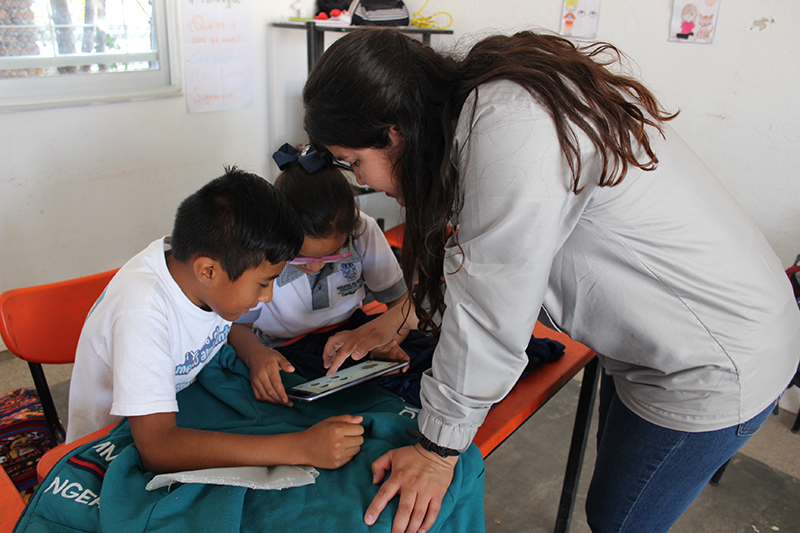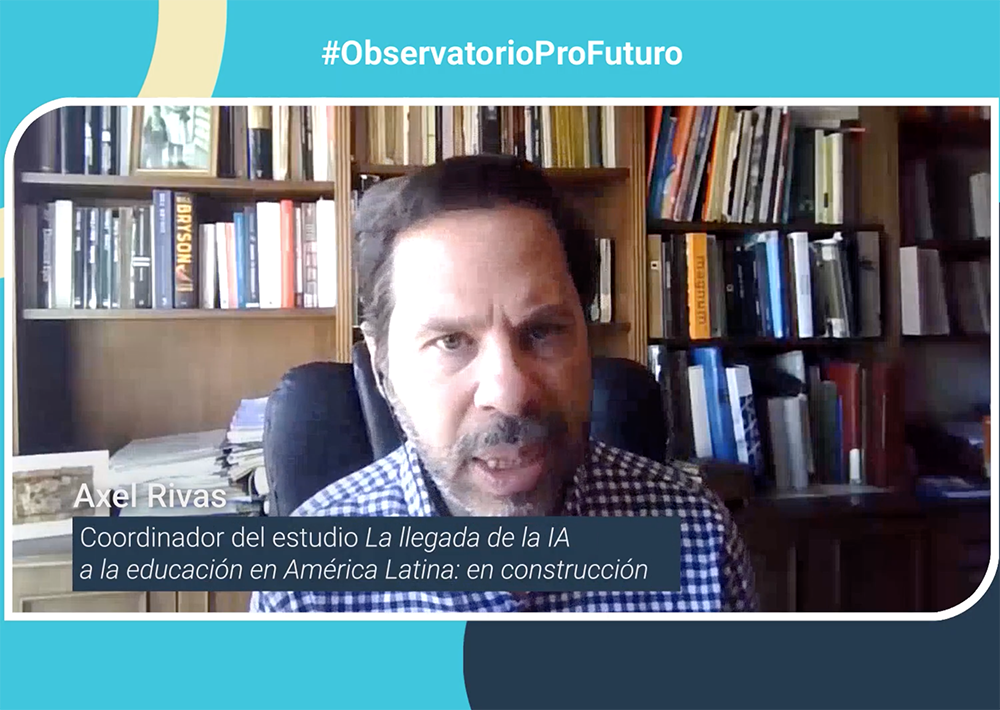Why is the Fourth Industrial revolution being discussed in education debates? What is the role of teachers in the changes that this revolution implies? Is the learning society a direct outcome of this phenomenon? Iván Gómez, education expert and current advisor to the Colombian Ministry of Education, addresses these and other issues in this episode of the podcast series produced by Telefónica Foundation Movistar Colombia. In this article we summarise and highlight some of the reflections of this chemist by training who came to the world of educational research “because working for the common good makes him feel like a better person.” You can listen to the full interview here:
The Fourth Industrial Revolution will have, and is already having, a strong impact on education. According to Iván Gómez, this happens because, as in previous industrial revolutions, and although the initial changes belong more to a purely technological field, the changes they introduce are directly reflected both in the behavioural changes in society and the alteration of job profiles. That is why, for educational institutions (especially universities and technical and technological institutions), the Fourth Industrial Revolution has a decisive role to play, as they have to know how to adapt the preparation of their students for new jobs, understanding and differentiating “those that can be automated from those that will always have human labour at their base.”
Teaching to learn and unlearn throughout life
How can we transfer the above to the Observatory approach, which is associated with basic and secondary education? What should teachers learn from these initial stages in order to create learning experiences adapted to this new reality? In this regard, Iván Gómez refers, firstly, to the importance of teachers being comfortable using technological devices in the classroom. “Firstly, we should think how teachers can take ownership of these tools” to use them in their classes “permeating and enhancing children’s learning”. For this education expert, in the current circumstances of Internet connection, this is going to be a challenge. In addition, we must begin to bring students “closer to certain roles or careers that will be decisive in this Fourth Industrial Revolution.”
“Another implicit reflection to have with children is the capacity for transformation over time and the dynamic capacity to learn and unlearn new things,” explains Gómez. It is essential that teachers internalise and disseminate the tangential relationship between the Fourth Industrial Revolution and the learning society concept. As the researcher explains, the fact that knowledge is advancing faster leads to a fragmentation that makes it impossible for a subject to be entirely limited to educational programmes in the current format. Children need to understand that learning processes can no longer be restricted to a delimited curriculum. Rather, we are talking about a life project. Therefore, the aim is not to prepare students with comprehensive knowledge, but rather to prepare them to react and adapt to changes over time.
What empowers students in this Fourth Industrial Revolution is “their ability to extract information, analyse it, filter it and generate proposals based on it.” Also “their creative ability to come up with divergent solutions to historical problems.” Or their “ability to work with others on joint strategies for sustainable solutions to these problems.”
Awareness and social reflection to avoid widening the education gap
When we talk about the consequences of technological innovations in education, it is mandatory to go into the additional problems faced by some of the rural areas where there is no access to these tools. In this regard, Iván Gómez highlights two very important facts to bear in mind: the first one is that the Fourth Industrial Revolution and its transformations are going to reach, one way or another, all territories. What happens is that, “they will develop in a very clumsy and incipient way in those territories that are not ready.” For example, the fact that some areas have poorer quality Internet connection may lead to greater difficulties for students to enter the labour market later in life.
The second issue is that, historically, “when industrial revolutions have reached communities in an inequitable way, they end up generating social and productivity conflicts.” To avoid perpetuating this gap, all participants must be acutely aware of their role and that of their territory in this Fourth Industrial Revolution. Closing that gap has to do with being aware of certain issues democratisation, which are empowering for the majority of people, and that is the case of Internet connection. It is therefore essential to prepare these territories so that, when the technological revolution effects arrive, they are well prepared.
The COVID-19 pandemic and the school closures have had very serious effects in terms of learning loss and setbacks in the educational achievements that had been made in the region over the last 20 years. However, it has also triggered a great social experiment: the abrupt incorporation of technology into educational processes. This incorporation has left us with some positive aspects that we must take advantage of and continue to develop, always based on social reflection so that the consequences of the Fourth Industrial Revolution and the new learning society that has arisen from it do not end up deepening and perpetuating social and educational gaps.
If you would like to listen to other reflections by Iván Gómez, you can listen to the full interview on the Telefónica Foundation Movistar Colombia podcast.







